We recently connected with George Buchanan and have shared our conversation below.
George, thanks for joining us, excited to have you contributing your stories and insights. So let’s jump to your mission – what’s the backstory behind how you developed the mission that drives your brand?
The story behind our mission begins with my own career journey. I studied electrical engineering at Florida A&M University with the sole mission of getting a decent paying job with a steep over-time salary curve. I was a bit of a bleeding heart back then, and told myself I wouldn’t work in an industry that didn’t, as I saw it, advance society. After graduating, I was happy to join the energy and environmental solutions team for the same multinational firm I had interned. The position was in Atlanta, GA, and I happily pack up a rental truck and start the next chapter of my life. Having attended an HBCU, I was a bit shocked to find myself one of a handful of black people in an office of well over 100 people – but more on that later.
Working in the energy efficiency space – by the way, I sometimes like to say that I was reducing our carbon footprint before it was cool – I was afforded the opportunity to work with a variety of people. These were often multi-million dollar projects that spanned entire portfolios of facilities. The premise of the main program offering was simple. We’ll upgrade existing infrastructure and operations, also known as the built environment, which will result in reduced energy and operational cost. The facilities owner would borrow the funds to pay for theses upgrades, and the firm would guarantee that there would be sufficient cost savings to cover all of the program costs over the life of the loan. As I progressed through positions in performance assurance, engineering, development, sales, and account management, I found myself mixing with client’s officers from executive, operations, finance, legal, procurement, maintenance, and other departments. Boards, Councils, and constituents trusted these people to make the right decisions. They in turn trusted me, and the company by extension, to deliver an outcome that would, or should, benefit their organization for years to come. I earned an MBA while working to better understand my clients’ organizations.
As time passed I became a bit jaded and did not always believe the company was interested in living up to what I was heralding. I sat in many internal meetings where the client seemed to be a mere afterthought. Every talking point was focused on meeting the margin requirements handed down from on high. There were lengthy discussions on the risks we might encounter, and the extra markup to be added to mitigate those risks – to my knowledge the money was never returned when said risk did not materialize. With age came the realization that some very clever people had create a culture that incentivized business segments to give the customer less than they paid for while making it appear just the opposite. Selling an organization that you do not fully believe in cannot be sustained for very long – at least not for me. Moreover, I came to realize I would likely not rise to the c-suite of this company. Mind you, this was well before focusing on DE&I across organizations, or at least giving the appearance of doing so, had become mainstream. Although said to be improving, the energy and environmental solutions space has a poor track record in terms of gender and ethnic diversity.
I wondered what was possible if each decision didn’t require input from someone I’d say maybe once per year. Not just project decisions, where the people with which I’d developed a relationship were considered as little more than potential profit or loss. This question also applied to community decisions – supporting a local cause or sponsoring a regional trade association required approval from, again, someone who maybe knew your name and face, but not much more than that. I witnessed managers who had given decades to the company find themselves unceremoniously walked out the door because they went against upper management. Sheesh… was this the future? Could things be different? How would I feel when I hit 50-years old without having tried something bold? With all these things in mind, finally, I ran out of answers to the question “what am I doing here?”.
2KB Energy Services was founded on April 17, 2015. I used personal savings to buy a laptop, a cell phone, a car (that company car perk was pretty nice), and a filing cabinet. I had a logo professionally designed, bought a copy of QuickBooks, and completed all the required registrations. A colleague and friend with his own energy consulting firm agreed to sub work to me. I had gone from wearing jeans and boots and carrying field measuring tools, to suits and ties carrying business cards and brochures, back to jeans and boots and carrying tools. It was a beautifully humbling experience. I had intended 2KB to be a lifestyle business, where I would secure and deliver contracts myself, perhaps subbing out the portions outside of my technical expertise. However, the trust and faith my clients had resulted in more work than I could handle; two years later I would hire the company’s first employee. By the end of this year we will return to our high of 8 FTEs. Our mission, vision, and culture have always been there, but this year we’ve taken the time to stop and clearly articulate each of them.
The 2KB vision is “Healthy Climate and Communities for All”. I have never stopped believing in the potential to enjoy what life has to offer while remaining good stewards of world we inherited. So we approach this vision through our mission, which is “Delivering sustainable energy strategies for our clients’ infrastructure”. Supporting this vision and mission are the cultural values through which we filter all decisions, decide whom to add to the team, select which initiatives to purse, and so on. What are those values?
• To be compassionate and humble – we are empathetic, respectful, and appreciative in everything we do. We understand that our clients have many options when considering teams to help them meet their goals for sustainable energy strategies – we take their decision to work with us very seriously. By taking the team to understand and respect their situation and needs, we can deliver something that will truly help them. The result is our ability to obtain information not always widely known.
• To be dependable – through every action, our team, our clients, and our partners know they can depend on us. We pour ourselves into whatever we undertake – and it shows. Each of us knows we can depend on one another. And everyone outside of 2KB who has worked with us know that they can depend on consistent delivery of our best efforts. The result is our clients and partners engaging with us for years-long, multi-phased engagements.
• To embrace change – we seek and embrace positive change by regularly reviewing our mission alongside the evolving landscape. We realize there are ways of thinking, doing, and being that we haven’t yet encountered. We don’t not subscribe to the notion of “we do it that way because that’s the way it’s always been done”. We evaluate new options and opportunities against our vision, mission, and values, and we’re not afraid to go somewhere we’ve not yet been.
• To grow together – a place of opportunity where individuals are encouraged to reach their potential in an inclusive and safe environment. If someone shares our values, then that person is welcome here. We seek out team members and partners that can offer unique perspectives and backgrounds, as we know they will further enrich our team and our offerings. We are advocates for continuous improvement of our tools. We’re all expected to obtain and maintain our industry certifications, and to explore growth into areas related to our role’s core focus.
• To seek possibilities – we ask questions, we seek opportunities, and we solve problems. We do not know everything, and we know that there is much more beyond the things we do know. We’re always asking ourselves, and others, if this is possible, what else is possible that is also related to our core passion and focus.
• To be efficient – we seek to do more with less. This one speaks for itself – we find a way to get it done. In situations where resources are lacking, we do the right thing anyway. History has taught me that if you do the right thing, everything else usually works itself out.
That’s the story behind out mission. Thank you for reading this. If you’re thinking of a bold move fraught with risks and the potential for massive failure, just know… “failure is simply an opportunity to begin again, this time more intelligently”. — Henry Ford
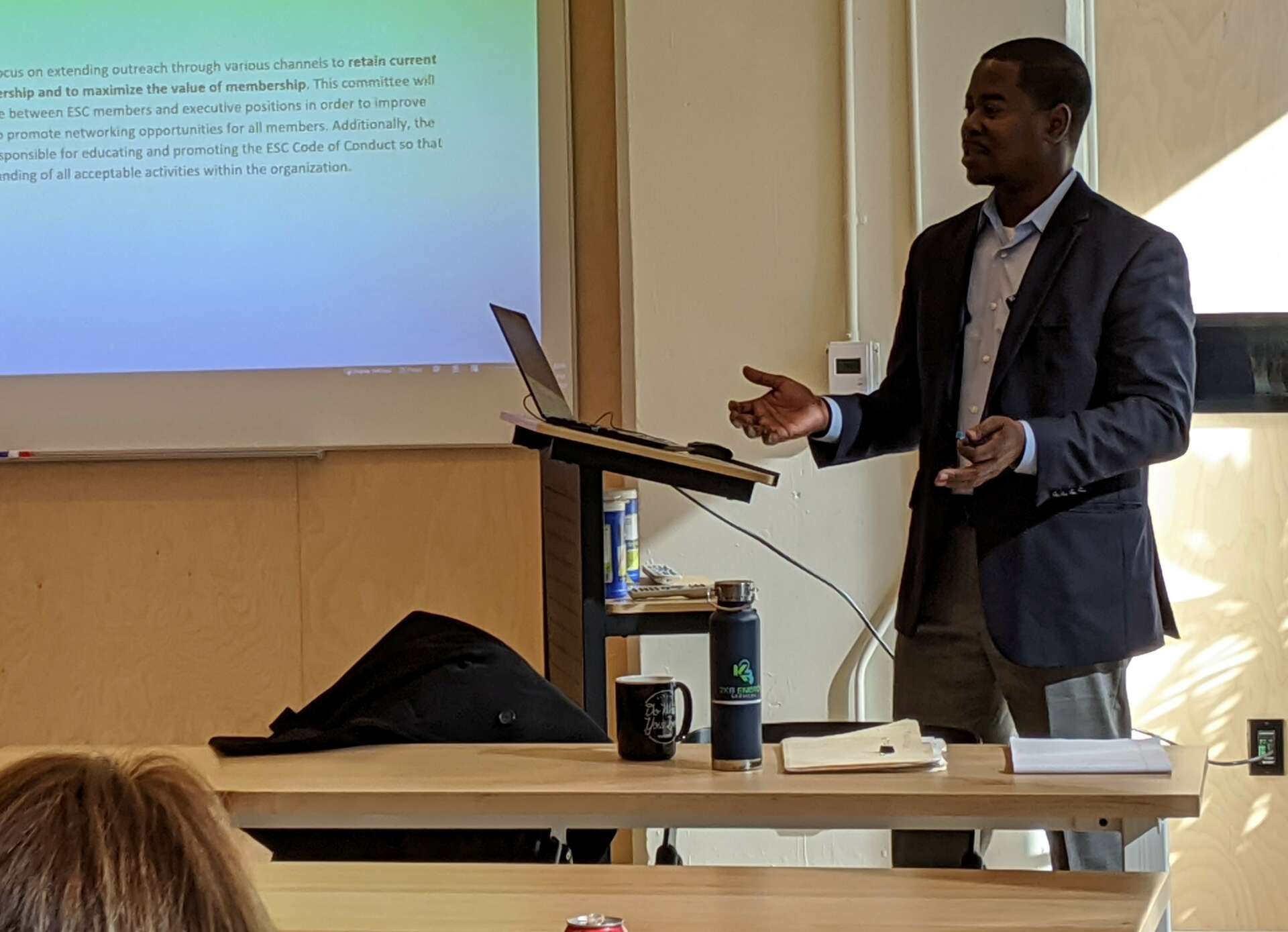
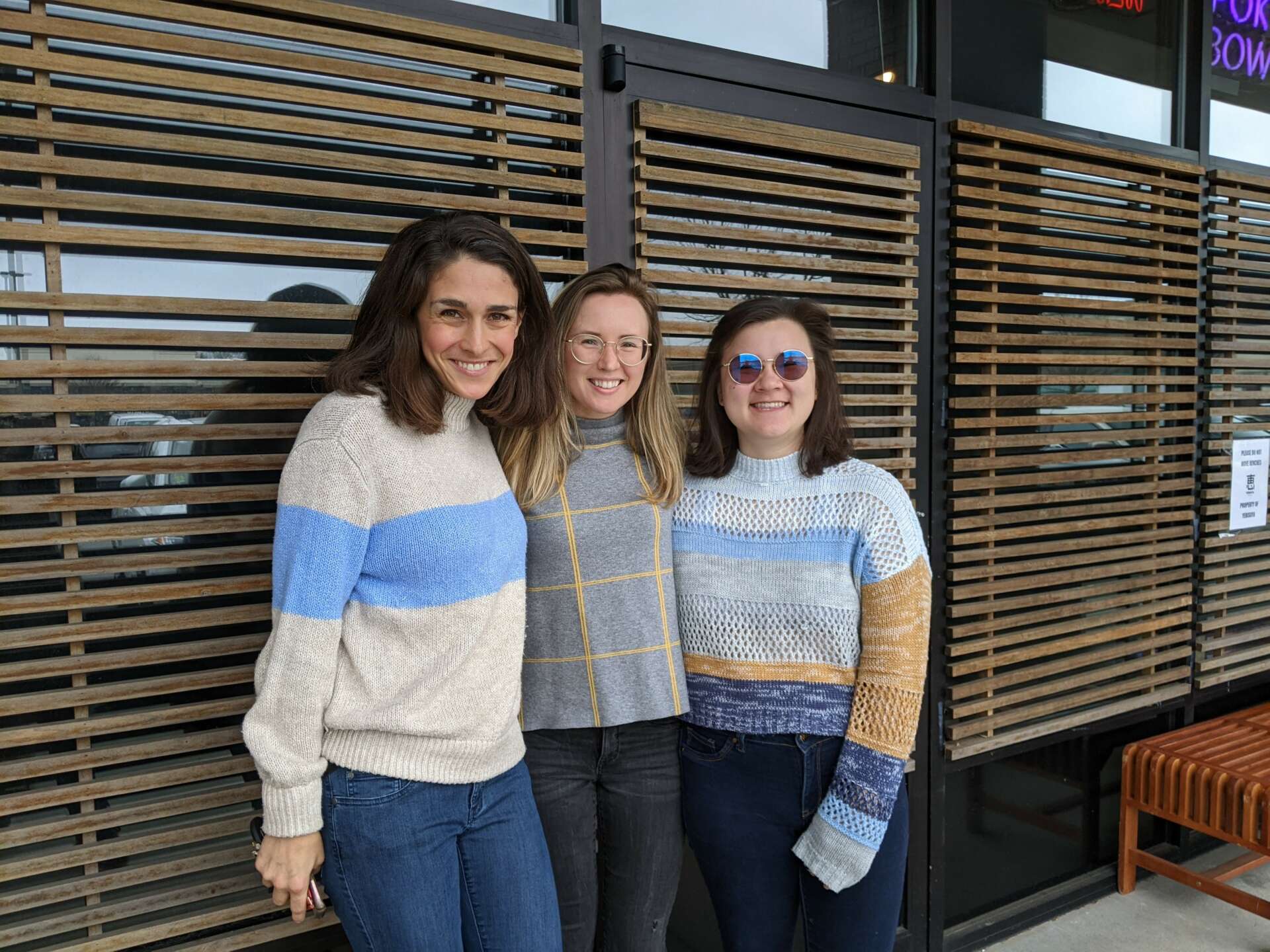
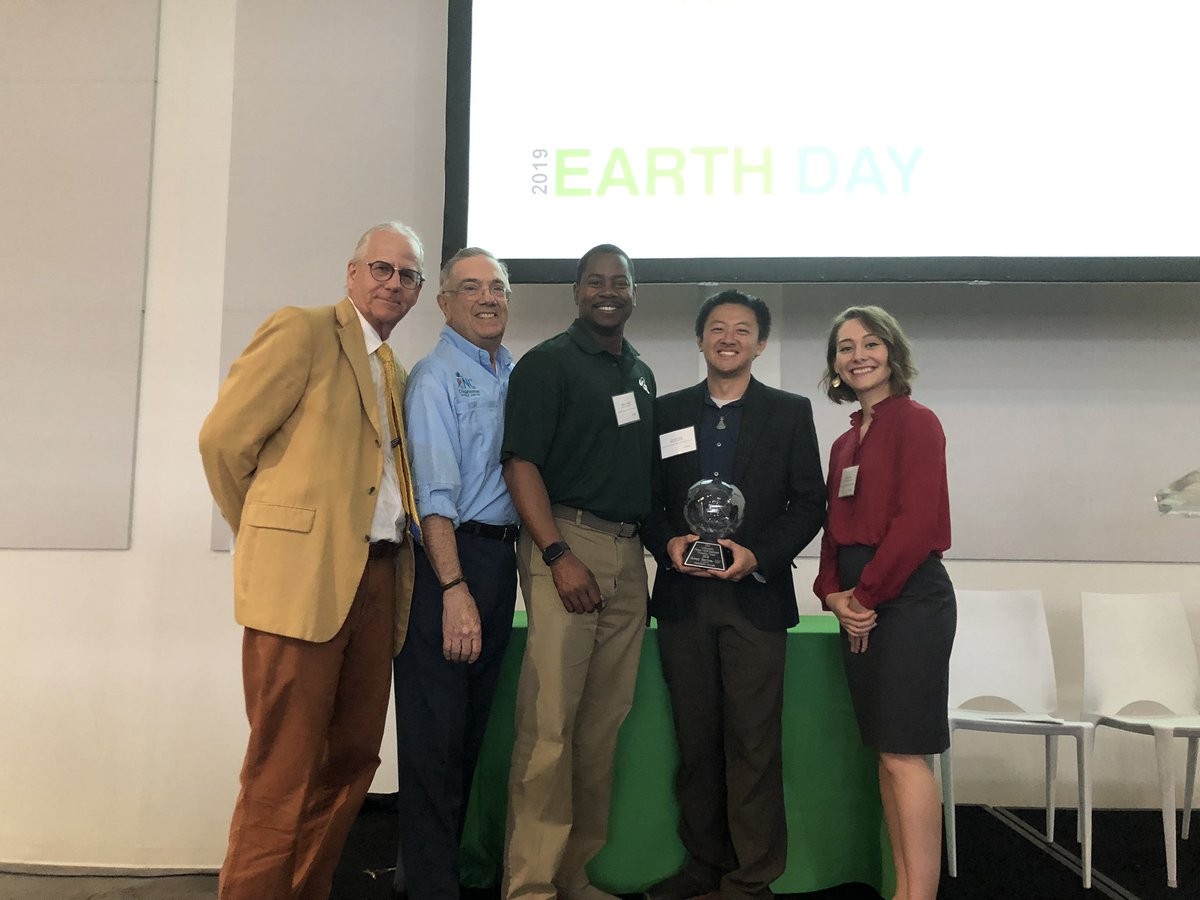

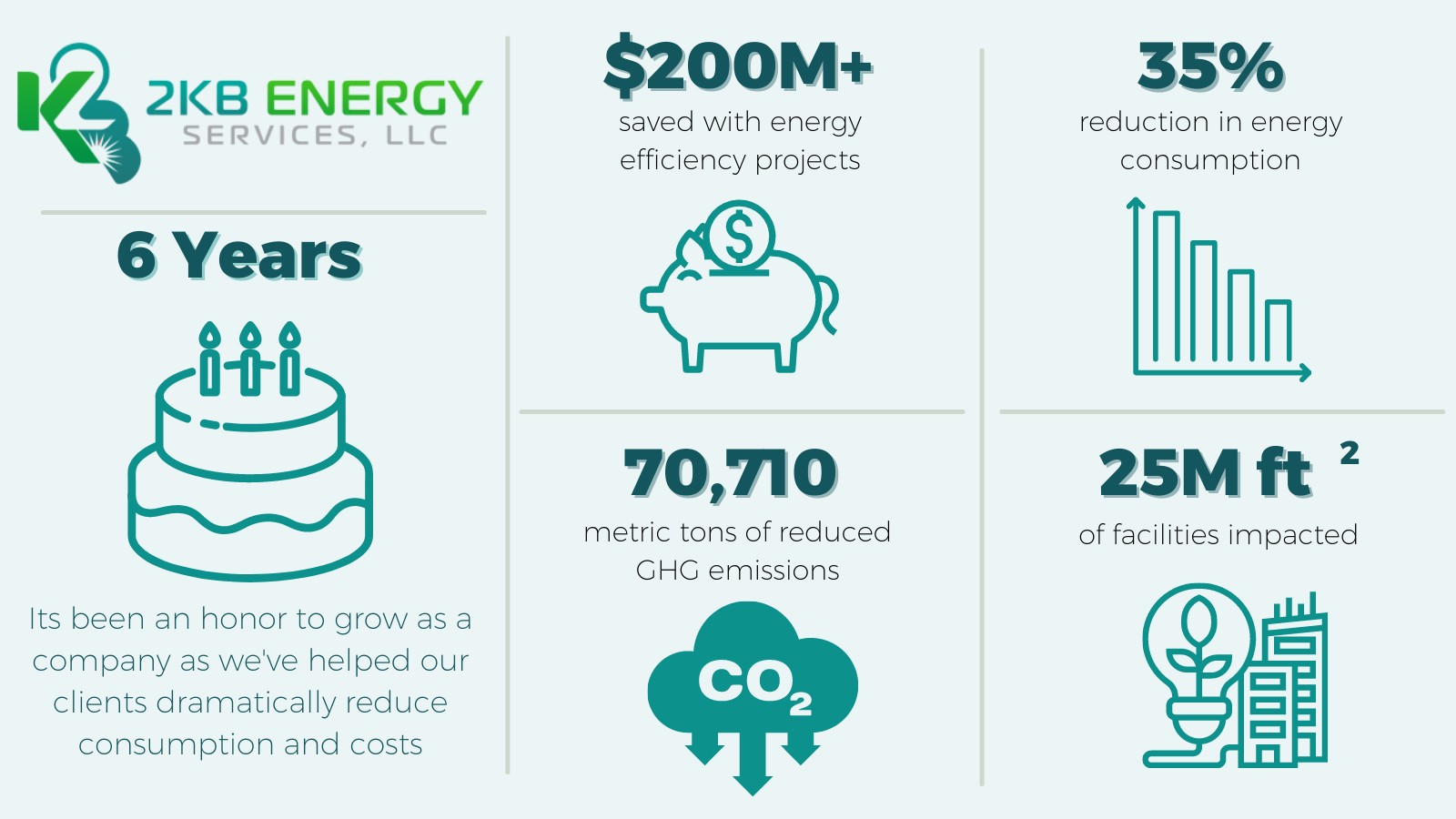
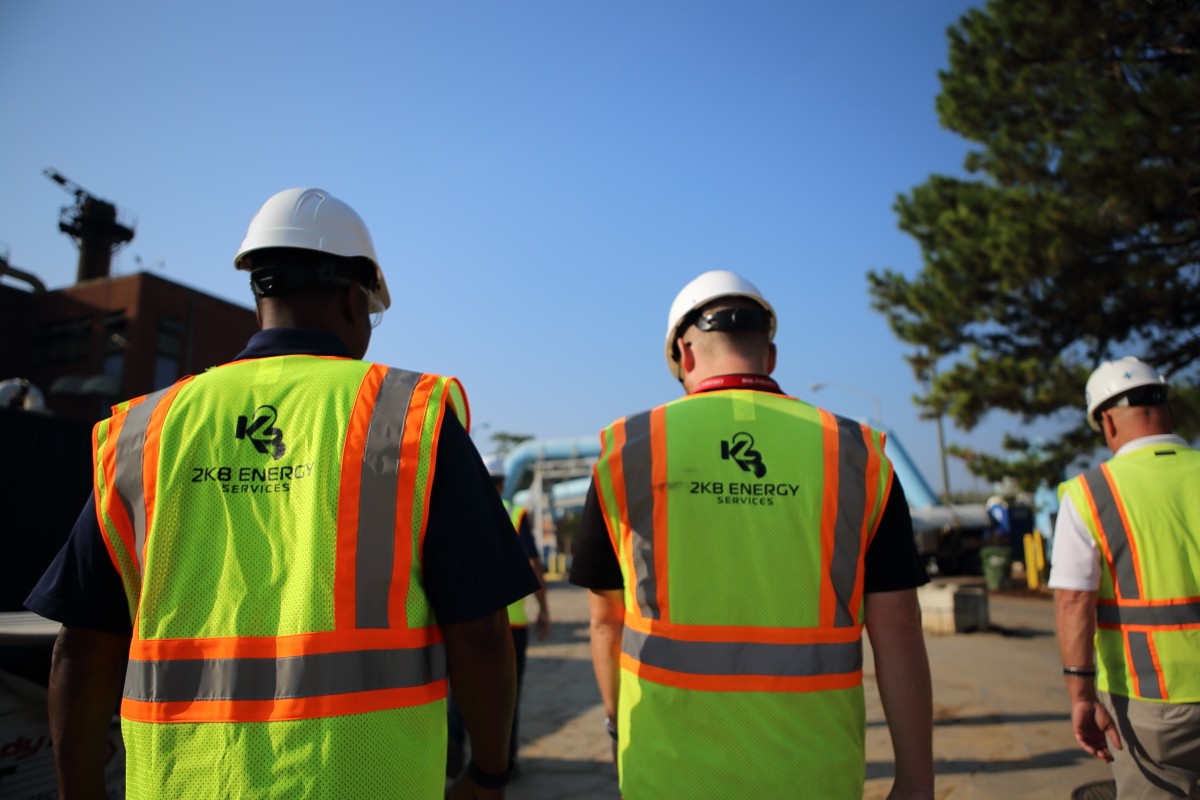
George, love having you share your insights with us. Before we ask you more questions, maybe you can take a moment to introduce yourself to our readers who might have missed our earlier conversations?
The story behind our mission begins with my own career journey. I studied electrical engineering at Florida A&M University with the sole mission of getting a decent paying job with a steep over-time salary curve. I was a bit of a bleeding heart back then, and told myself I wouldn’t work in an industry that didn’t, as I saw it, advance society. After graduating, I was happy to join the energy and environmental solutions team for the same multinational firm I had interned. The position was in Atlanta, GA, and I happily pack up a rental truck and start the next chapter of my life. Having attended an HBCU, I was a bit shocked to find myself one of a handful of black people in an office of well over 100 people – but more on that later.
Working in the energy efficiency space – by the way, I sometimes like to say that I was reducing our carbon footprint before it was cool – I was afforded the opportunity to work with a variety of people. These were often multi-million dollar projects that spanned entire portfolios of facilities. The premise of the main program offering was simple. We’ll upgrade existing infrastructure and operations, also known as the built environment, which will result in reduced energy and operational cost. The facilities owner would borrow the funds to pay for theses upgrades, and the firm would guarantee that there would be sufficient cost savings to cover all of the program costs over the life of the loan. As I progressed through positions in performance assurance, engineering, development, sales, and account management, I found myself mixing with client’s officers from executive, operations, finance, legal, procurement, maintenance, and other departments. Boards, Councils, and constituents trusted these people to make the right decisions. They in turn trusted me, and the company by extension, to deliver an outcome that would, or should, benefit their organization for years to come. I earned an MBA while working to better understand my clients’ organizations.
As time passed I became a bit jaded and did not always believe the company was interested in living up to what I was heralding. I sat in many internal meetings where the client seemed to be a mere afterthought. Every talking point was focused on meeting the margin requirements handed down from on high. There were lengthy discussions on the risks we might encounter, and the extra markup to be added to mitigate those risks – to my knowledge the money was never returned when said risk did not materialize. With age came the realization that some very clever people had create a culture that incentivized business segments to give the customer less than they paid for while making it appear just the opposite. Selling an organization that you do not fully believe in cannot be sustained for very long – at least not for me. Moreover, I came to realize I would likely not rise to the c-suite of this company. Mind you, this was well before focusing on DE&I across organizations, or at least giving the appearance of doing so, had become mainstream. Although said to be improving, the energy and environmental solutions space has a poor track record in terms of gender and ethnic diversity.
I wondered what was possible if each decision didn’t require input from someone I’d say maybe once per year. Not just project decisions, where the people with which I’d developed a relationship were considered as little more than potential profit or loss. This question also applied to community decisions – supporting a local cause or sponsoring a regional trade association required approval from, again, someone who maybe knew your name and face, but not much more than that. I witnessed managers who had given decades to the company find themselves unceremoniously walked out the door because they went against upper management. Sheesh… was this the future? Could things be different? How would I feel when I hit 50-years old without having tried something bold? With all these things in mind, finally, I ran out of answers to the question “what am I doing here?”. I walked away from debilitating comfort and the illusion of security to seek out what was possible.
2KB Energy Services was founded on April 17, 2015. I used personal savings to buy a laptop, a cell phone, a car (that company car perk was pretty nice), and a filing cabinet. I had a logo professionally designed, bought a copy of QuickBooks, and completed all the required registrations. A colleague and friend with his own energy consulting firm agreed to sub work to me. I had gone from wearing jeans and boots and carrying field measuring tools, to suits and ties carrying business cards and brochures, back to jeans and boots and carrying tools. It was a beautifully humbling experience. I had intended 2KB to be a lifestyle business, where I would secure and deliver contracts myself, perhaps subbing out the portions outside of my technical expertise. However, the trust and faith my clients had resulted in more work than I could handle; two years later I would hire the company’s first employee. By the end of this year we will return to our high of 8 FTEs. Our mission, vision, and culture have always been there, but this year we’ve taken the time to stop and clearly articulate each of them.
The 2KB vision is “Healthy Climate and Communities for All”. I have never stopped believing in the potential to enjoy what life has to offer while remaining good stewards of world we inherited. So we approach this vision through our mission, which is “Delivering sustainable energy strategies for our clients’ infrastructure”. Supporting this vision and mission are the cultural values through which we filter all decisions, decide whom to add to the team, select which initiatives to purse, and so on. What are those values?
• To be compassionate and humble – we are empathetic, respectful, and appreciative in everything we do. We understand that our clients have many options when considering teams to help them meet their goals for sustainable energy strategies – we take their decision to work with us very seriously. By taking the team to understand and respect their situation and needs, we can deliver something that will truly help them. The result is our ability to obtain information not always widely known.
• To be dependable – through every action, our team, our clients, and our partners know they can depend on us. We pour ourselves into whatever we undertake – and it shows. Each of us knows we can depend on one another. And everyone outside of 2KB who has worked with us knows that they can depend on consistent delivery of our best efforts – and dogged protection of the trust they have in us. The result is our clients and partners engaging with us for years-long, multi-phased engagements.
• To embrace change – we seek and embrace positive change by regularly reviewing our mission alongside the evolving landscape. We realize there are ways of thinking, doing, and being that we haven’t yet encountered. We don’t not subscribe to the notion of “we do it that way because that’s the way it’s always been done”. We evaluate new options and opportunities against our vision, mission, and values, and we’re not afraid to go somewhere we’ve not yet been.
• To grow together – a place of opportunity where individuals are encouraged to reach their potential in an inclusive and safe environment. If someone shares our values, then that person is welcome here. We seek out team members and partners that can offer unique perspectives and backgrounds, as we know they will further enrich our team and our offerings. We are advocates for continuous improvement of our tools. We’re all expected to obtain and maintain our industry certifications, and to explore growth into areas related to our role’s core focus.
• To seek possibilities – we ask questions, we seek opportunities, and we solve problems. We do not know everything, and we know that there is much more beyond the things we do know. We’re always asking ourselves, and others, if this is possible, what else is possible that is also related to our core passion and focus.
• To be efficient – we seek to do more with less. This one speaks for itself – we find a way to get it done. In situations where resources are lacking, we do the right thing anyway. History has taught me that if you do the right thing, everything else usually works itself out.
That’s the story behind out mission. Thank you for reading this. If you’re thinking of a bold move fraught with risks and the potential for massive failure, just know… “failure is simply an opportunity to begin again, this time more intelligently”. — Henry Ford



Have you ever had to pivot?
I wondered what was possible if each decision didn’t require input from someone I’d say maybe once per year. Not just project decisions, where the people with which I’d developed a relationship were considered as little more than potential profit or loss. This question also applied to community decisions – supporting a local cause or sponsoring a regional trade association required approval from, again, someone who maybe knew your name and face, but not much more than that. I witnessed managers who had given decades to the company find themselves unceremoniously walked out the door because they went against upper management. Sheesh… was this the future? Could things be different? How would I feel when I hit 50-years old without having tried something bold? With all these things in mind, finally, I ran out of answers to the question “what am I doing here?”. After 17 years, I walked away.
2KB Energy Services was founded on April 17, 2015. I used personal savings to buy a laptop, a cell phone, a car (that company car perk was pretty nice), and a filing cabinet. I had a logo professionally designed, bought a copy of QuickBooks, and completed all the required registrations. A colleague and friend with his own energy consulting firm agreed to sub work to me. I had gone from wearing jeans and boots and carrying field measuring tools, to suits and ties carrying business cards and brochures, back to jeans and boots and carrying tools. It was a beautifully humbling experience. I had intended 2KB to be a lifestyle business, where I would secure and deliver contracts myself, perhaps subbing out the portions outside of my technical expertise. However, the trust and faith my clients had resulted in more work than I could handle; two years later I would hire the company’s first employee. By the end of this year we will return to our high of 8 FTEs. Our mission, vision, and culture have always been there, but this year we’ve taken the time to stop and clearly articulate each of them.
Contact Info:
- Website: www.2kbenergyservices.com
- Instagram: 2KB Energy Services
- Linkedin: https://www.linkedin.com/company/2kb-energy-services/
- Twitter: @2kbco
- Youtube: https://www.youtube.com/channel/UCHOqIr_EblV5k3nkyaefORQ


